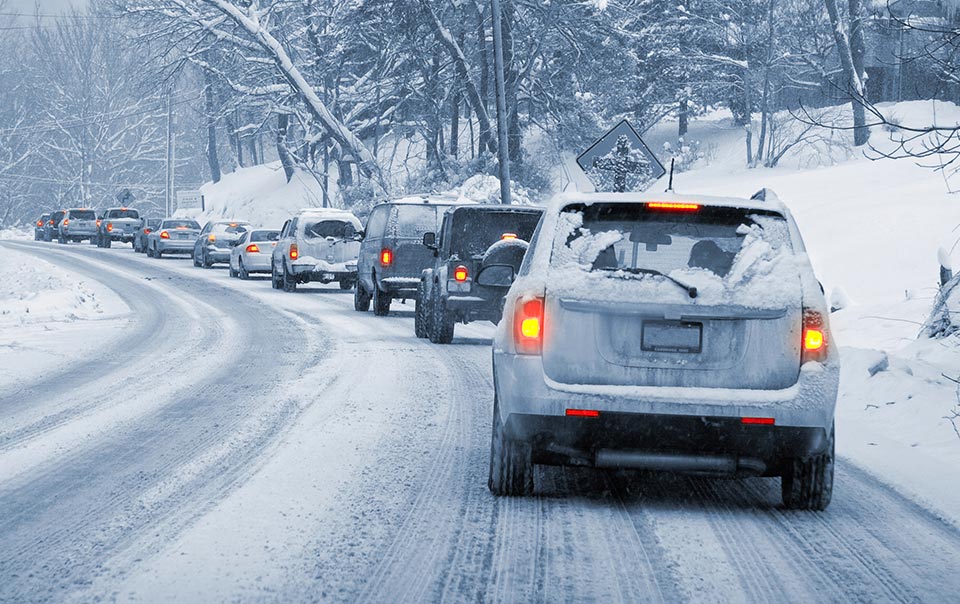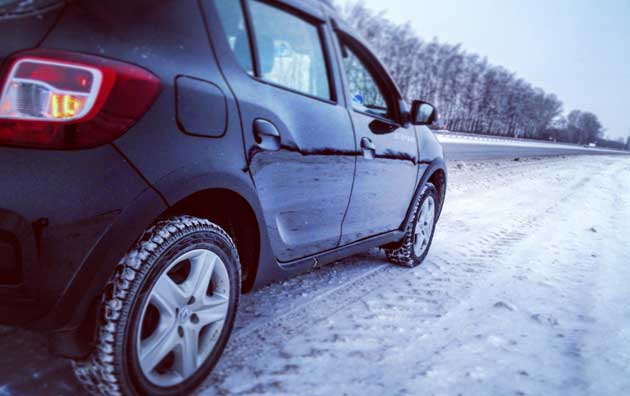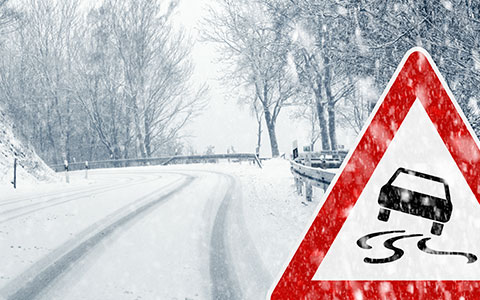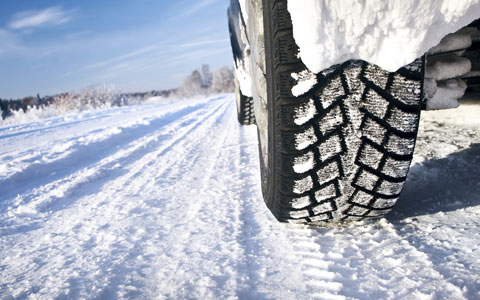Winter Driving Safety Tips


When winter weather strikes, drivers face out-of-the-ordinary challenges when they get behind the wheel. Snow, slush or icy roads are involved in nearly one in four weather-related vehicle crashes.1 These conditions can make it harder for drivers to see, slow down and stop – all factors that can increase the chances of an accident.
If you must travel during winter weather, preparing your car in advance, knowing the forecast and driving based on road conditions are three key ways to help you drive more safely. Following are some winter driving safety tips to help you prepare for the elements – before you face them – on the road.
Preparing Your Vehicle
As temperatures start to drop, it’s time to make sure your car is stocked with a winter driving survival kit, including an ice scraper, a snow shovel and sand or road salt. This way, you’ll be prepared if winter weather arrives while you’re away from home. It’s also a good time to check your tires to determine whether it’s time to replace them or whether you need snow tires.
A few habits to adopt regularly during the winter months can also help prepare you for a wintry drive. Keep your windshield wipers in good condition and your windshield fluid reservoir filled so you can clear snow and ice from your windshield. Make it a practice to keep your gas tank full so you can run your engine and stay warm if you get stuck or stranded.
Keeping your gas tank full in extended cold weather can also help minimize the amount of water vapor in your tank, which can freeze when temperatures drop. In addition to keeping the tank full, consider keeping your vehicle in a garage and using fuel additives such as dry gas to help eliminate water vapor that could freeze in your gas lines. You should also either drive or run your car in a well-ventilated area at least every few days to help avoid a dead battery, another cold weather concern.
Watching the Weather
If you plan to travel when inclement weather looms, monitor road and weather conditions by checking local news stations or Internet traffic and weather sites. You can sign up for weather alerts to receive text messages and optional alerts for your area. Do not check your phone while driving and avoid all unnecessary distractions when you’re behind the wheel.
Driving for Winter Conditions
Before you leave the driveway or parking lot, take time to clear snow and ice off your car, including your windows, mirrors, lights, reflectors, hood, roof and trunk. Drive with your headlights on and be sure to keep them clean to improve visibility. Use caution when snow banks limit your view of oncoming traffic.
As you get on the road, remember that speed limits are meant for dry roads, not roads covered in snow and ice. You should reduce your speed and increase your following distance as road conditions and visibility worsen. Avoid using cruise control in snowy or icy conditions – you want to have as much control over your car as possible. Be cautious on bridges and overpasses as they are commonly the first areas to become icy. Avoid passing snow plows and sand trucks because the drivers may have limited visibility and the road in front of them could be worse than the road behind.
Breaking Down or Getting Stuck
If you are unexpectedly caught in a snowstorm and are stranded or get stuck in snow, if your car is safely out of harm’s way, stay in your car and wait for help. You can run the car heater to stay warm for 10 minutes every hour, but first, make sure your exhaust pipe is clear of snow. There is a danger of carbon monoxide poisoning if snow blocks the pipe and enables the deadly gas to build up in your car. Open your window slightly to help prevent any buildup.
Remember, driving in winter weather can be challenging, even for experienced drivers. Slowing down, allowing increased time to come to a stop, wearing your seatbelt, devoting your full attention to the road and being aware of changing conditions can help you drive more safely. If your travel route takes you into remote areas with limited cell phone coverage, consider informing a third party of your travel plans and share with them your route and when you plan to arrive. This way, if you are overdue, first responders will know where to start looking. If you’re unsure whether it is safe to drive, consider waiting until the roads improve.
More Prepare & Prevent

The Science Behind Winter Driving
Ever wonder what causes black ice, how snow tires work or what causes hydroplaning? Learn the science behind some common winter driving conditions.

How to Drive in Icy Conditions
Driving on icy roads can create challenging, and potentially dangerous, driving conditions.

Do I Need Snow Tires?
Every winter, car owners may ask themselves, do I need snow tires? Compare benefits of all season and snow tires, and find out if you need them.